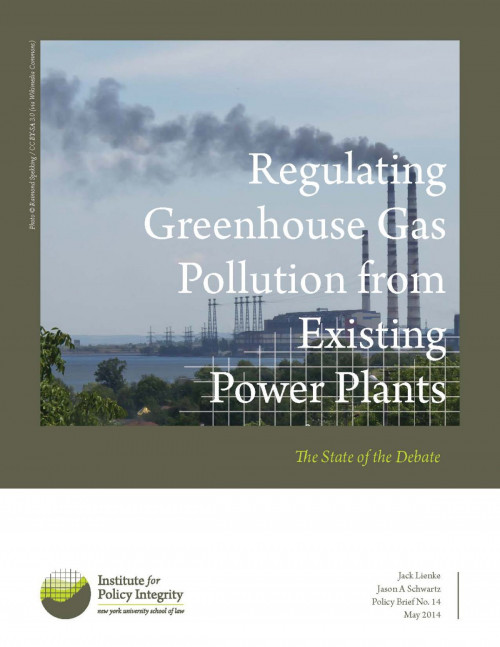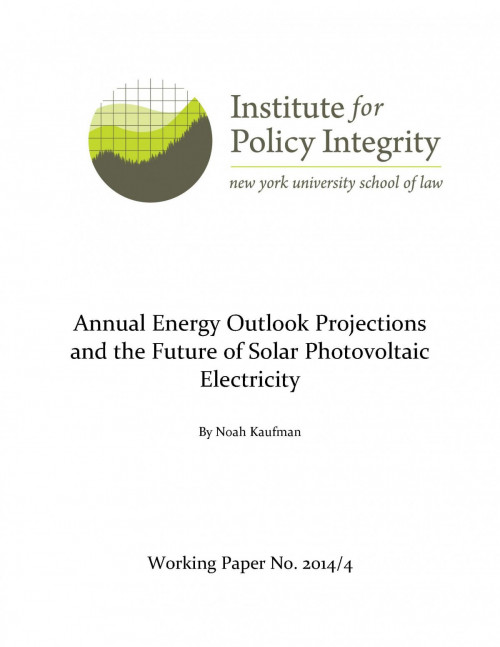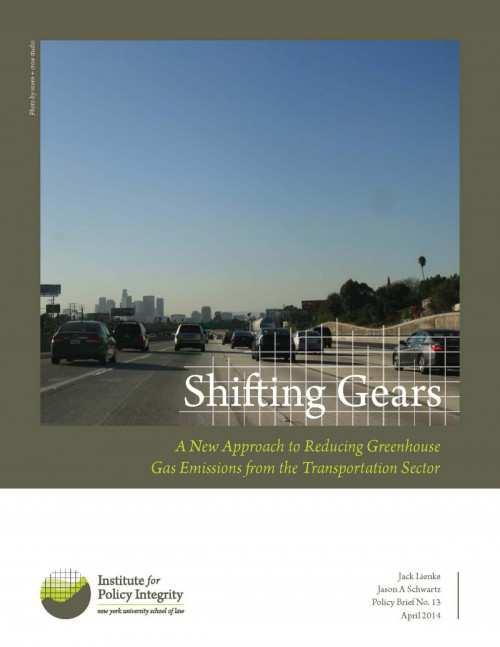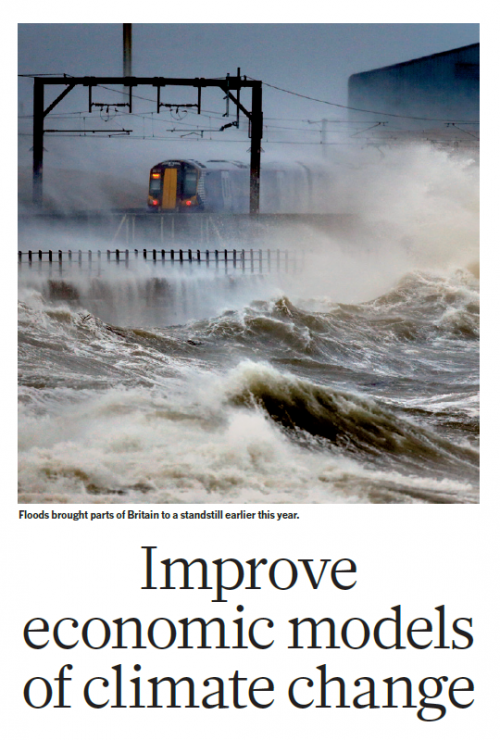-
EPA Proposes Power Plant Regulations
The centerpiece of the Obama Administration’s effort to address climate change through executive action is now a known quantity with the release of the EPA’s proposed carbon pollution guidelines for existing power plants. The rule, pursuant to Section 111(d) of the Clean Air Act, would cut carbon pollution from power plants 30 percent from 2005 levels by 2030 and allow states to use flexible approaches to meet this target.
-

Regulating Greenhouse Gas Pollution from Existing Power Plants
The State of the Debate
Environmentalists, industry groups, and state governments have been vocal regarding their preferences for the shape of EPA’s forthcoming rule on greenhouse gas pollution from existing power plants. In this policy brief, Jack Lienke and Jason Schwartz survey 30 public letters, white papers, presentations, and reports from these stakeholders and outline their positions.
-
Joint Public Comments on the Social Cost of Carbon to DOE and HUD
On May 16, we submitted joint comments on the social cost of carbon to two Department of Energy energy efficiency rules and to another energy efficiency rule proposed jointly by the Department of Housing and Urban Development and the Department of Agriculture. They are substantially similar to those we submitted for EPA’s proposed New Source Performance Standards rule on May 9th. The comments to DOE are available here, and the comments to HUD are available here.
-
Comments Submitted to EPA on Proposed Emissions Standards for New Power Plants
Policy Integrity submitted comments to the Environmental Protection Agency on its proposed performance standards for greenhouse gas emissions from new power plants. To help maximize the net benefits of the proposed standards and to ensure their solid legal foundation, Policy Integrity made the following recommendations:
-

Annual Energy Outlook Projections and the Future of Solar PV Electricity
The topic of this paper is the assumed growth of solar photovoltaic (PV) in current energy models, with a focus on information from Annual Energy Outlook (AEO) of the U.S. Energy Information Administration (EIA). EIA resolves the difficulty of modeling solar energy into the future by assuming its current growth will not continue. However, EIA’s assumptions on the future costs of solar PV are highly pessimistic, and its methodology would appear to bias its “Reference Case” projections toward lower growth of solar energy. Sure enough, past AEOs have systematically underestimated the future growth of solar PV. Energy modelers therefore may need to adjust the AEO forecast in order to reflect a most likely baseline trajectory for solar PV.
-

Shifting Gears
A New Approach to Reducing Greenhouse Gas Emissions from the Transportation Sector
To overcome a stall out of “command-and-control” regulations for biofuels, EPA should move towards a flexible, market-based emissions trading system for the transportation sector.
-
Global Warming: Improve Economic Models of Climate Change
Costs of carbon emissions are being underestimated, but current estimates are still valuable for setting mitigation policy, say Richard L. Revesz, Peter H. Howard, Kenneth Arrow, Lawrence H. Goulder, Robert E. Kopp, Michael A. Livermore, Michael Oppenheimer, and Thomas Sterner in Nature.
-
Policy Integrity Staff Attend Supreme Court Oral Arguments on EPA PSD Permitting Case
Policy Integrity director, Richard Revesz, legal director, Jason Schwartz, and legal fellow Denise Grab were at the Supreme Court today to hear oral arguments in the case challenging the Environmental Protection Agency’s (EPA) authority to regulate greenhouse gas emissions from stationary sources under the prevention of significant deterioration (PSD) program.
-
Supreme Court Amicus Brief on EPA’s PSD Permitting Case
Policy Integrity filed an amicus brief with the U.S. Supreme Court supporting the authority of the Environmental Protection Agency (EPA) to regulate greenhouse gas emissions from stationary sources under the prevention of significant deterioration (PSD) program.
-
Comments on EPA Proposed 2014 Standards for the Renewable Fuel Standard Program
Policy Integrity submitted comments to the Environmental Protection Agency (EPA) on the agency’s proposed 2014 standards for the Renewable Fuel Standard (RFS) program. EPA proposes to reduce renewable fuel targets from 2013 levels, due to concerns regarding industry’s ability to produce sufficient quantities of qualifying fuel and consumers’ ability to use the fuel. This backsliding highlights the RFS program’s inability to guarantee steady reductions in greenhouse gas emissions.
Viewing recent projects in Climate and Energy Policy

